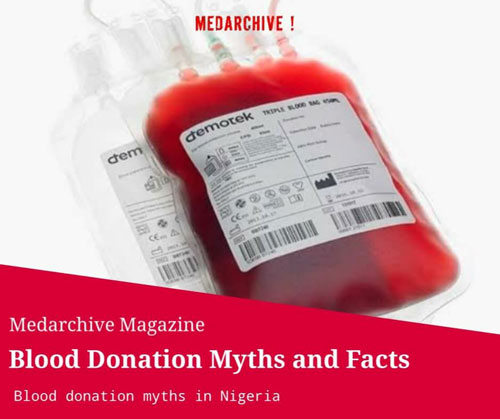IN our Medical Myths series, senior news editor Tim Newman approaches medical misinformation head on.
Using expert insight and peer reviewed research to wrestle fact from fiction, MNT brings clarity to the myth riddled world of health journalism.
In the United States, there are more than 13.2 millionTrusted Source blood donors. Globally, people donate more than 100 millionTrusted Source units of blood each year.
It is only possible to store blood for a limited time, so encouraging the routine donation of blood is key.
As the World Health Organization (WHO)Trusted Source explains:
“A decision to donate your blood can save a life, or even several if your blood is separated into its components — red cells, platelets, and plasma — which can be used individually for patients with specific conditions.”
Medical News Today spoke with Dr. James F. Kenny, the associate chair of the Department of Emergency Medicine at Staten Island University Hospital, NY. He outlined the vital contribution of donated blood to society:
“Patients who have been subjected to major trauma, are under surgery, receive chemotherapy, or have disease of the bone marrow commonly require transfusion of blood products to survive.
Transfusion of a blood product happens every 2 seconds in the U.S. — that’s 21 million transfusions per year!”
Anyone who is healthy before donating blood will not become less healthy afterward.
Although doctors recommend that people rest for a day and drink fluids after donating, the health of these individuals is not in jeopardy.
Within an estimated 48 hours of donating, an individual’s blood volume returns to normal — predominantly through an increase in plasma. Within 4–8 weeks, the body will replace all of the lost red blood cells.
MNT spoke with Dr. Emanuel T. Ferro, Ph.D., a pathologist at MemorialCare Orange Coast Medical Center in Fountain Valley, CA, and director of the Blood Bank, Donor Center, and Transfusion Medicine at MemorialCare Long Beach Medical Center in Long Beach, CA. He told us:
“Blood donation is extremely safe. The vast majority of blood donors are able to donate a pint of blood in less than 15 minutes after completing a health questionnaire.









